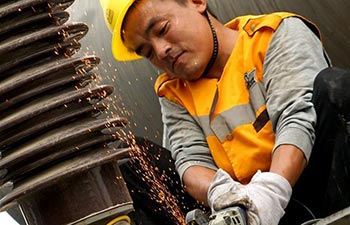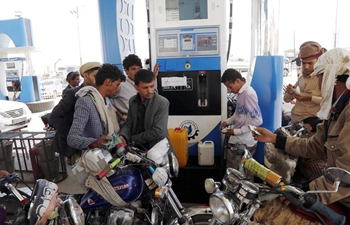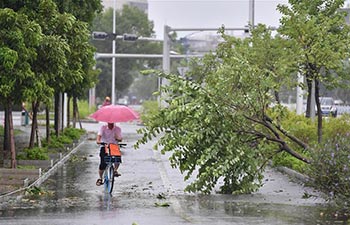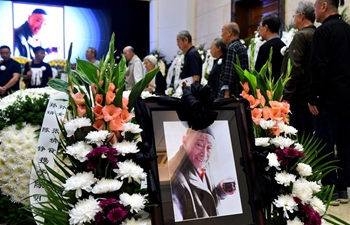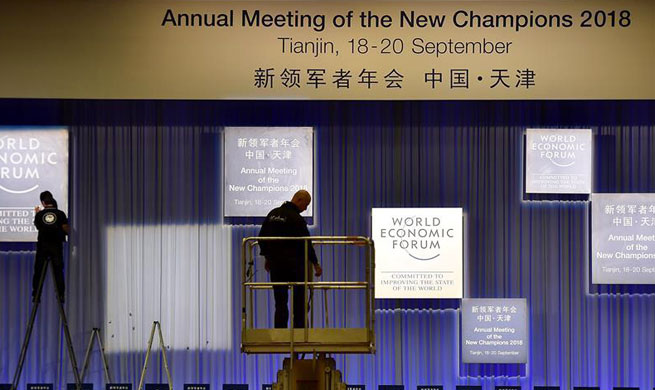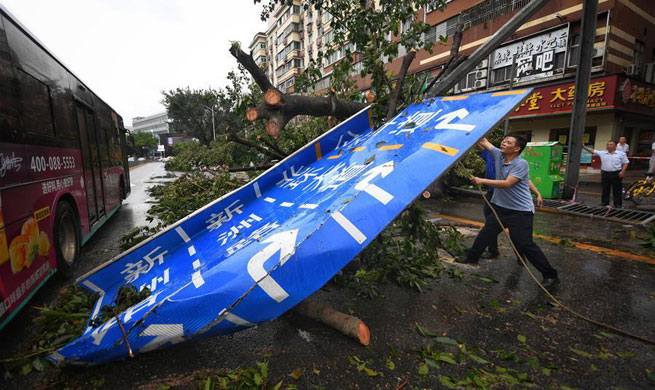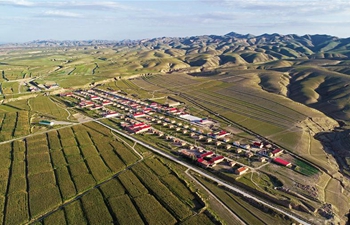by Xinhua writer Wang Haiqing
BEIJING, Sept. 18 (Xinhua) -- The Korean Peninsula is witnessing another step forward where improving relations between Pyongyang and Seoul are concerned as the leaders of the two Koreas are meeting for the third time this year.
But this time, the meeting is not being held at the truce village of Panmunjom, where the previous two inter-Korean summits took place. Instead, it is happening some 200 km away in the capital of the Democratic People's Republic of Korea (DPRK), which can be interpreted as a sign of growing mutual trust.
The change of venue exceeds a symbolic gesture and reflects the good faith between the two Koreas to strive for stability and lasting peace on the peninsula, spearheaded by South Korean President Moon Jae-in and the DPRK's top leader Kim Jong Un. In a further sign of the good faith, Kim greeted Moon at the airport on Tuesday.
Despite the lack of a detailed agenda for the summit, it is known that Moon has two major objectives for his Pyongyang trip -- one, to continue developing inter-Korean relations, and two, to jumpstart the stalled DPRK-U.S. dialogue on denuclearization.
On inter-Korean relations, a noteworthy element of Moon's delegation is that it is comprised not only of high-ranking officials and politicians, but also of business leaders. This is clearly a follow-up on their previous talks in the economic arena, which resonates with Pyongyang's decision in April to carry out strategic economic construction.
In the lead-up to the summit, the two Koreas set up a joint office in the DPRK's border town of Kaesong, starting a round-the-clock communication channel that is forecast to become the "cradle of Korean co-prosperity," as South Korean officials have said at the launching ceremony.
South Korea has also approved a plan to provide about 122.8 billion won (109.5 million U.S. dollars) in compensation to companies suffering losses due to government restrictions on trade with the DPRK.
To demonstrate its good will, Pyongyang made a point of making the first Kim-Moon summit a centerpiece of its recent founding anniversary celebrations, with the joint declaration and pictures of the historic meeting on display on floats and in mass gymnastics. The anniversary parade also showed a much smaller arsenal, featuring weapons only of the conventional type.
Based on what has already happened, it is safe to say that the Korean Peninsula has been pulled back from the brink of war. What Pyongyang and Seoul have done in the past few months to de-escalate tensions and nurture detente should be acknowledged.
However, to achieve denuclearization and lasting peace on the peninsula needs concerted efforts by all parties involved, but it is known to all that the key to a final solution lies in the normalization of relations between Pyongyang and Washington.
The conspicuous lack of progress in the DPRK-U.S. dialogue since the Singapore summit has left people across the world wondering if the meeting that has been heavily praised by U.S. President Donald Trump did actually achieve any breakthrough.
As if to protest the lack of progress over the issue, Washington canceled a planned visit in late August by Secretary of State Mike Pompeo to Pyongyang only a day after an official announcement of the visit.
Without looking into the problems of its hard-ball approach over the issue, Washington has in recent weeks blamed others for its stalled talks with DPRK on denuclearization.
To break the current stalemate, the United States needs to look inward rather than outward and rethink its approach to the denuclearization issue rather than making unfounded accusations against others.
As a long-time supporter of peace and stability on the Korean Peninsula, China would like to see relevant parties, including Pyongyang and Washington, sit down for talks to seek a solution to the decades-long security conundrum.
After all, it is the willingness to compromise that paves the way to a good deal, not threats of "maximum pressure" or accusations against others.
